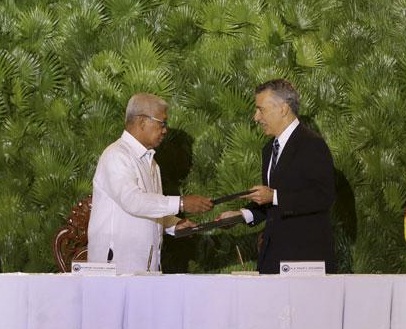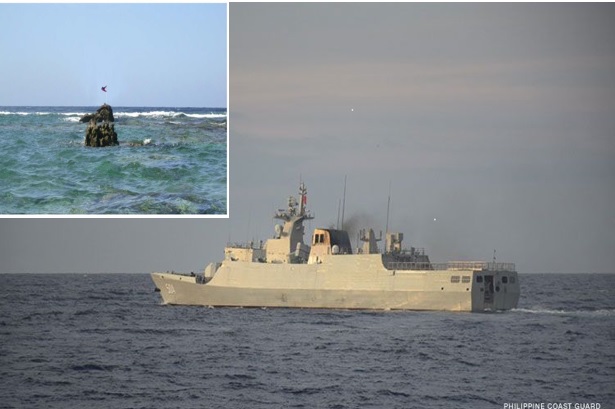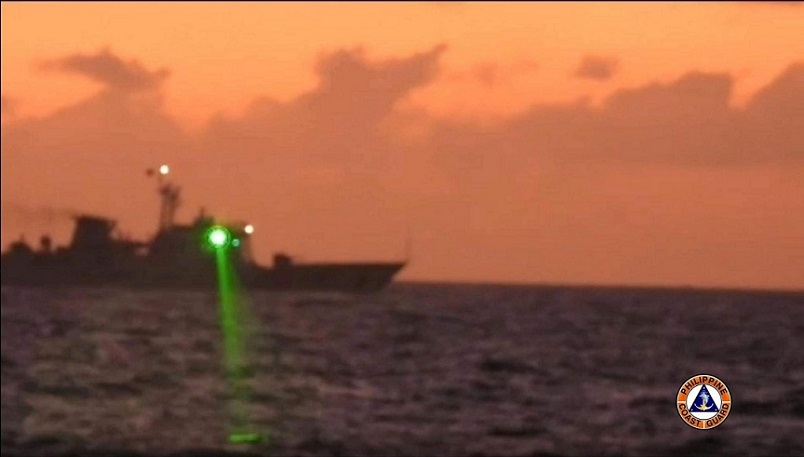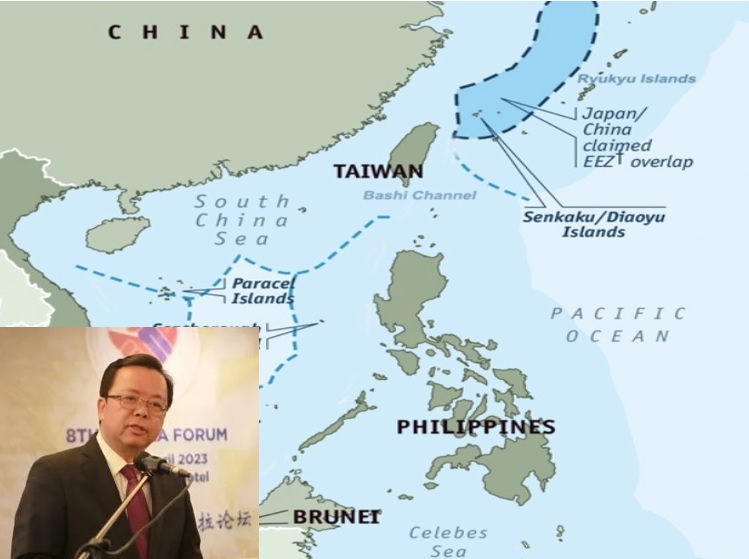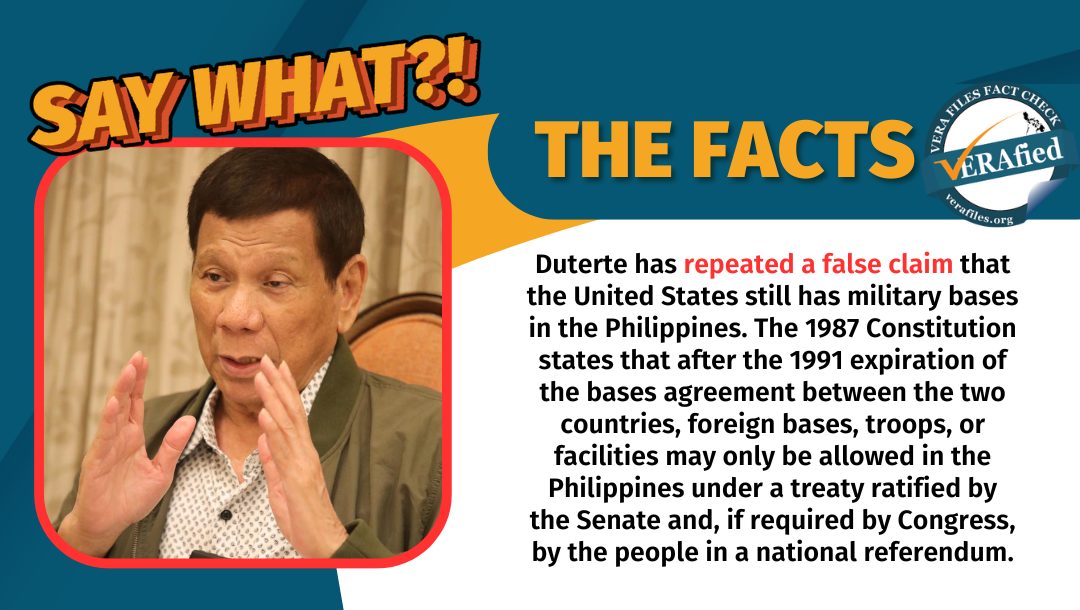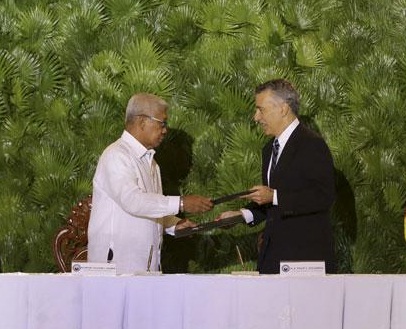
DEFENSE Secretary Voltaire Gazmin had no choice but to say what EDCA, the agreement he signed with the United States Ambassador Philip Goldberg last April 28, really is under strict questioning by Sen. Miriam Santiago, chairperson of the Senate Committee on Foreign Relations.
EDCA stands for Enhanced Defense Cooperation Agreement which allows the U.S. to set up camps within Philippine military camps despite the Constitutional prohibition that “military bases, foreign military bases, troops, or facilities shall not be allowed in the Philippines except under a treaty duly concurred in by the Senate and, when the Congress so requires, ratified by a majority of the votes cast by the people in a national referendum held for that purpose, and recognized as a treaty by the other contracting State. “
To sell EDCA to the Filipino public, the Aquino government led by Foreign Secretary Albert del Rosario and Gazmin demonized China and said with the agreement, the U.S. will come to the aid of the Philippines in case there will be an armed conflict with China in the Spratlys, where both the Philippines and China have conflicting territorial claims.
Last Monday, Gazmin admitted that there is no such guarantee.
Gazmin’s answer follows the same line that the new Solicitor General, Florin Hilbay, told the Supreme Court last week when Senior Associate Justice Antonio Carpio told him, “I don’t want you to tell the world that we can rely on EDCA for our defense.”
At the Senate hearing, Santiago asked Gazmin: “What will the US do if a Chinese ship fires at a Philippine ship in the West Philippine Sea?”
Gazmin answered, “It’s part of the agreement that we can pull the US to join us in the fight.”
If he thought he can get away with that answer which was not exactly truthful, Santiago asked if the U.S. would immediately deploy planes and ships to fire at the Chinese, Gazmin had to admit that the deployment would go “through a process.”
Pressed further how long would the process take, Gazmin had to admit again that “The process takes long.”
Santiago knew it: “By that time, the [Philippine] ship has already sunk.”
The process Gazmin was compelled to mention this time, which he conveniently skipped before when he was deluding the Filipino public about EDCA, is the provision in the 1951 Mutual Defense Treaty that an armed attack in the Pacific Area on either of the Parties would be dangerous to its own peace and safety and declares that it would act to meet the common dangers in accordance with its constitutional processes.”
In the U.S. “Constitutional processes” means the President would have to ask approval from the Congress which could take a lot of debate and time.
Santiago is right. By the time the American legislatures would be through debating, the Philippine ship in Spratlys would have already been sunk. And the U.S. Congress may not even approve of risking the lives of their men in defense of rocks and islands the Philippines is disputing with China.
The U.S., in the first place, has not taken a position on the conflicting claims in the South China Sea.
But Gazmin, who has taken the pathetic position that the Philippines is so helpless without America, tried still to push EDCA as vital to the territorial defense of the country by saying that it serves as a deterrent.
He claimed that due to EDCA the Chinese didn’t block the sending of supplies to the troops in Ayungin Shoal which they did in May.
By crediting it all to EDCA, Gazmin is not being honest about the reason why China didn’t block the resupply of the troops provision in Ayungin.
The past months, both Malacañang and Beijing have been feeling each other out about re-activating bilaterial relations strained by the filing by the Philippines of a suit against China in the United Nations Arbitral Court. This culminated in the 10-minute pull aside talk of President Aquino and President Xi Jinping at the sidelines of the Asia Pacific Economic Cooperation summit in Beijing last month.
Unlike the high-profile trip last May to Ayungin which was covered by media with two U.S. planes hovering, the recent trip was done without much fanfare which China took positively.
Hilbay was more honest when he told the High Court that the best that the Philippines can do is to “hope” for the US to “change its mind” and come to the defense of the Philippines in the dreaded scenario of an armed conflict with China.
Hilbay said:“Hope is free, your honor, so might as well have it. We do what we do. We do what we can. That is the EDCA.”
